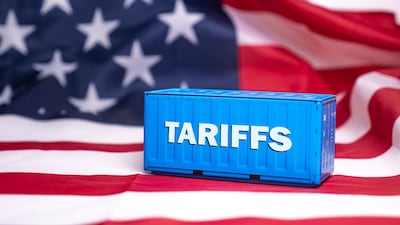India
The US-India dance on pharma goes on as they announce a trade deal framework that continues to exempt generics from the reduced 18% tariffs till a “negotiated outcome” is reached post a Sec. 232 investigation. However, oil imports from US could increase costs for pharma
A new report identifies opportunities to implement the 3Rs principle in India, calling for a waiver of redundant animal testing for generics and NCEs/NBEs and alignment with global regulatory frameworks. Will India shift gears to adopt harmonized NAM-first policies?
An India-EU trade deal sets ground for a free trade agreement to lower tariffs on pharma, though an investment protection agreement – likely influencing data exclusivity – will be concluded later. Will the US now reconsider its India tariffs?
Regulatory streamlining including in areas such as test licenses and cell/gene therapy, and policy support/incentives to propel innovation, were among the key themes that played out in India in 2025. More action is anticipated in this year, including in the biosimilars segment.
India’s moves on digital data protection don’t pose a hurdle to patient recruitment, but on the wish list of global innovators is permission for first-in-human (FIH) trials and removal of certain commercialization requirements, says Parexel’s India head
India is advancing regulatory rationalization efforts, refining procedures and pathways. Guidelines for biosimilars are expected to align with international standards, while early steps towards PIC/S compliance have been initiated.
Real-world evidence (RWE) studies in India face challenges like lack of data reliability and uniformity and absence of clear guidelines but firms like Bharat Serums have scored a regulatory win. Pink Sheet examines the RWE landscape and the BSV case study for lessons in beating the odds
India rolls out amended R&D financial assistance plan targeting certain ‘priority areas’ and calls for proposals from industry and startups. While the corpus is modest, the scheme hopes to enable the ‘Innovate in India’ ecosystem and includes a co-funding provision.
As US Secretary of State Marco Rubio hints at reconsideration of a punitive Russian oil tariff, Trump adds an H-1B visa brick to his trade wall and India lowers GST on cancer and rare disease drugs, the Pink Sheet considers the impact.
Intercept’s Ocaliva withdrawal in the US places the spotlight on emerging PBC candidates like Zydus’s saroglitazar, a PPAR agonist that beat both Gilead’s Livdelzi and Ipsen’s Iqirvo on biochemical response in topline results. Will the withdrawal and policy developments boost Zydus’s prospects?
Legal and other experts discuss the need to plug data privacy and regulatory gaps and address prescription shortcuts at e-pharmacies. Collaborative models with brick and mortar chemists were also proposed.
50% tariffs on US imports from India, a range on others, an uncertain outcome of Section 232 investigations of pharma and talk of BRICS tariffs are making the forecasting environment for the pharma industry extremely difficult, the Pink Sheet finds in this infographic analysis.
Key expert panel go-ahead with a trial waiver put’s Eisai's Alzheimer's therapy on track for a debut in India where tailored pricing will be pivotal. Lilly’s Kisunla is also under regulatory review.
As the US FDA expands unannounced foreign inspections building on pilots in India and China, experts expect higher scrutiny of overseas sites and perhaps even an industry shakeout in the longer term, though staffing and enforcement challenges could slow things down.
India is pressing ahead with “big shifts” in its regulatory approach for cell and gene therapies. Reduced “layers of review”, tighter internal timelines, upcoming guidelines to facilitate CGT development and reforms in the constitution of expert committees are some of the key changes.
US-based Colossal Labs has claimed to bring back the dire wolf from extinction. While the science is not as dramatic in India yet, cell and gene therapies are making progress as treatments for cancer and other diseases. Pink Sheet takes a look at what is driving CGT success and growth.
Trump announced a 26% reciprocal tariff on India, but a country-agnostic exemption of pharmaceuticals implies that the interests of Indian firms are protected for now. What is Indian pharma’s business exposure and what is domestic industry saying?
As Indian CROs are bracing for new registration mandates, an expert panel at the IGBA’s 3rd Bioequivalence conference discusses the implications of non-compliance in bioequivalence studies.
US President Trump’s plan for a “25% or higher” tariff on pharmaceuticals promises to have a far-reaching impact, from higher prices and drug shortages to increased onshoring of manufacturing in the US. Is MAGA worth the chaos it might create for MAHA? The Indian industry shares its views.
Legal heavyweights from Nishith Desai Associates, Anand and Anand, Corporate Law Group and EY partner and national cyber leader talk about compliance requirements that pharma and global capability centers may need to consider as India strengthens the framework for the protection of digital personal data.




















